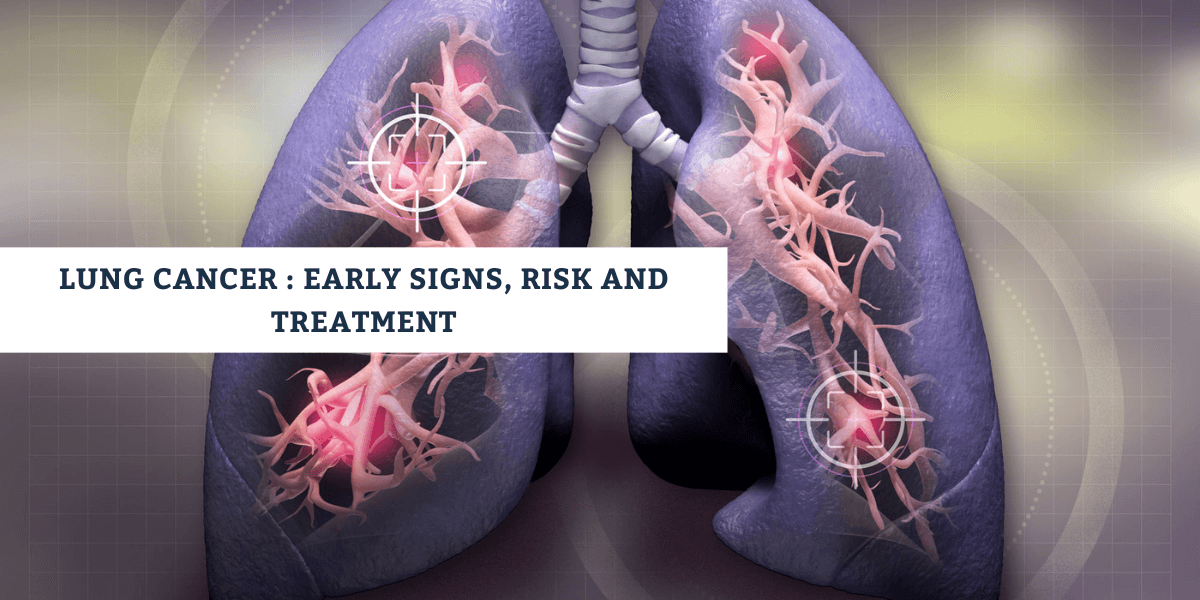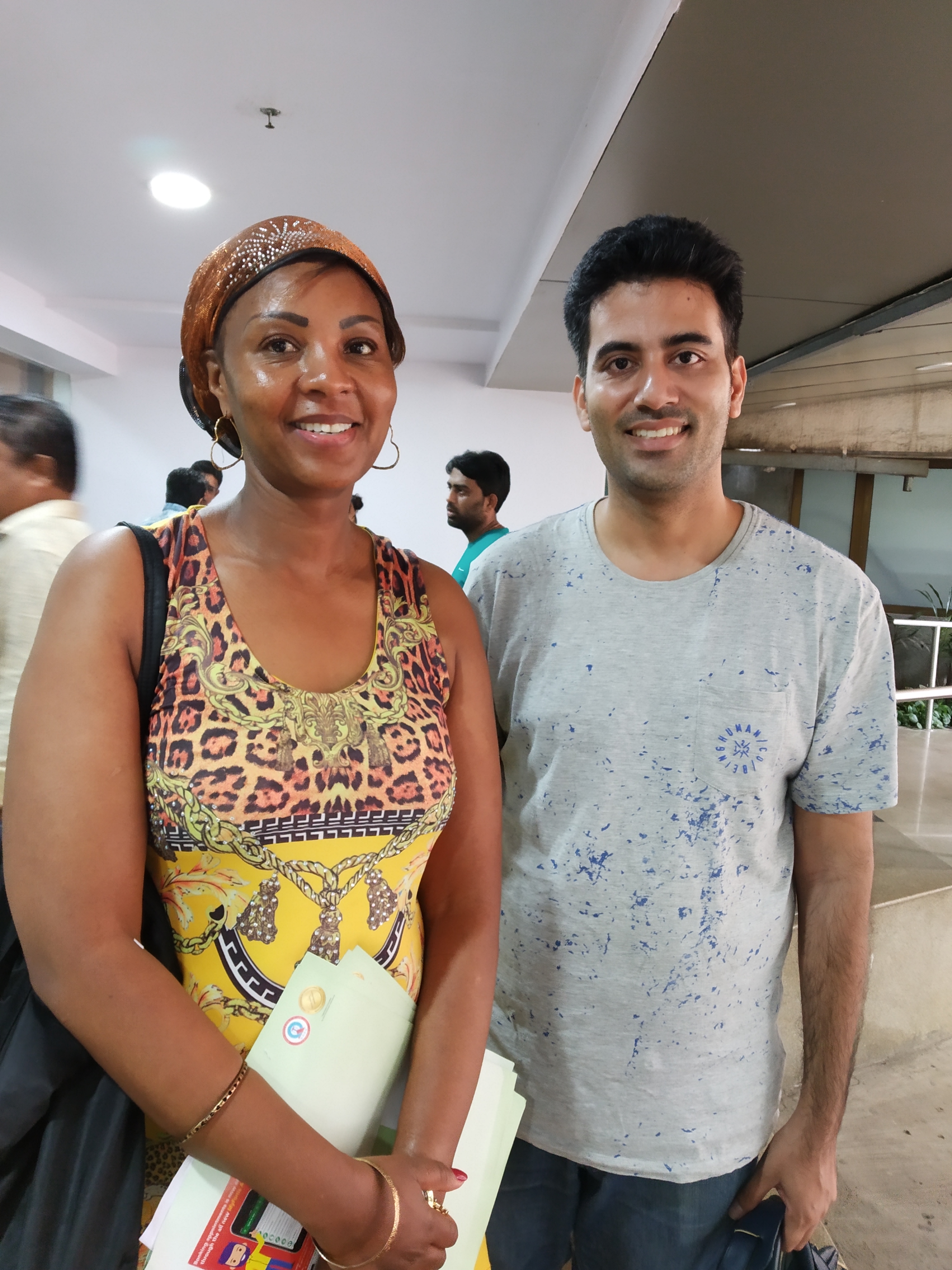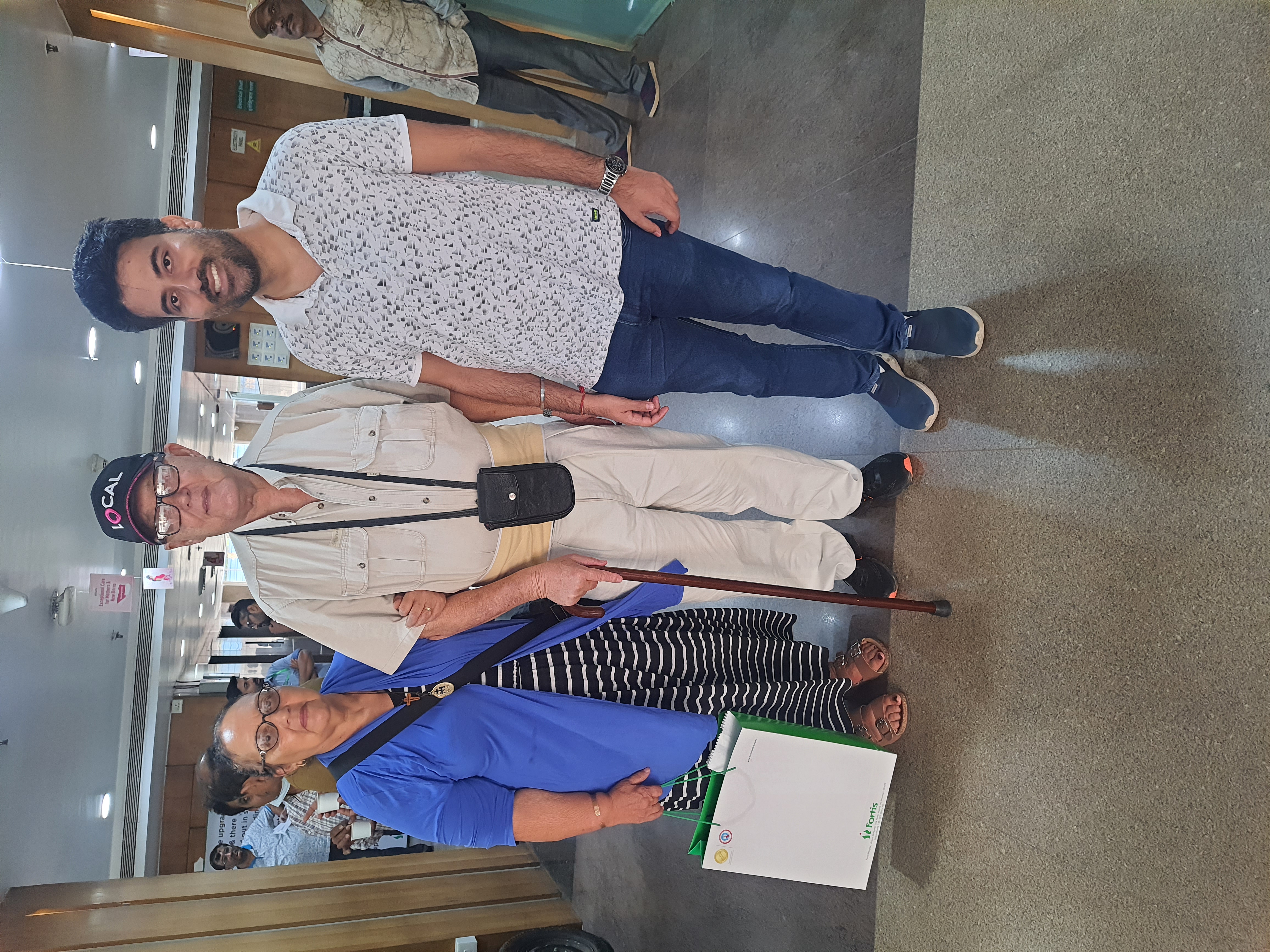Lung cancer affects a person when cells in the lungs divide uncontrollably and develop cancerous cells. These cancer cells may cause various health issues to your lungs like breathing difficulties and can grow and spread to other body parts. Lung Cancer Treatment in India is developing brilliantly with advancements made in medical technology and highly experienced practitioners specialized in lung cancer treatment. Lung cancer mostly occurs in people who are chronic smokers, non-hand smoke, family history and toxins exposure etc.
Major types of lung cancer includes:
- Non-small cell lung cancer occurs mainly in the bronchus or the mid part and outer lining of the lungs, in people who are regularly smoking or formerly smoked.
- Small cell lung cancer usually starts from the bronchi or the breathing tubes located in the centre area of the chest, which spreads and grow faster than Non-small cell lung cancer.
Symptoms of lung cancer
Mostly symptoms of lung cancer may not be experienced by the patients until the last stage. Earlier signs of lung cancer may resemble infection in respiratory passages along with breathing difficulties. Detecting lung cancer in the initial stages can be cured with minimal treatments.
We have shortlisted few commonly occurring earlier symptoms of lung cancer:
- You may experience pneumonia or bronchitis chest infections frequently.
- Your voice changes from normal to hoarseness.
- Swelling may be spotted in the lymph nodes located in the middle of your chest.
- Persistent cough that may worsen.
- Pain in the chest.
- Wheezing and shortness of breath.
- Fractures and pain in the bones.
- Chronic pain in the ribs and chest.
- Severe headaches.
- Dry, severe and persistent coughing with blood or phlegm.
- Weight loss and appetite loss.
- Fatigue.
- Blood clots.
Stages of lung cancer
The stages of lung cancer are diagnosed depending upon the severity and how far the cancer has spread. Following are the basic form of stages:
- Localized stage: In this earliest stage of lung cancer, it will be observes that the cancer is diagnosed within a particular limited area.
- Regional stage: Second form of staging is, the regional stage where the cancer formed in a particular area has spread to nearby lymph nodes or tissues.
- Distant stage: Distant is the last stage of cancer, where the cancerous cells have spread to other body parts.
Your doctors will analyse the size of the tumour, also the distance it has spread from the source, and whether it has affected the lymph nodes or any other parts of the body. Treatments will be decided accordingly.
Risk Factors for lung cancer
Various factors maximise risk of lung cancer. Certain risk factors such as tobacco smoking can be prevented but factors like genetic family history of lung cancer cannot be prevented. Second medical opinion in India could be considered for your lung cancer treatments through Vanya Health Medical Tourism Company representing highly qualified lung cancer specialists and surgeons.
1. Smoking
The number of tobacco products you have been consuming every day and the number of months or years you have smoked, increases your risk of getting lung cancer. Quitting smoking at any stage can do wonders to your health and reduces risk of lung cancer.
2. Second-hand smoke exposure
The people living in the environment where they are constantly exposed to smoke from tobacco products, are equally at risk of developing lung cancer.
3. Radon gas exposure
If you are working or living in an area where you are exposed to radon gas in the air you breathe, then you are at higher risk of getting lung cancer. Radon is a harmful chemical produced during the breakdown of uranium in the water, rock and soil. Unsafe degree of radon gas can be deposited in your homes or any buildings causing damages to your lungs.
4. Radiation therapy
If you have undergone the radiation therapy session in the chest area for treating cancer, then you are at higher risk of developing lung cancer.
5. Carcinogens and asbestos exposure
There are many harmful chemicals such as asbestos, carcinogens, nickel, chromium and arsenic causing lung cancer. If you are exposed to these substances it can maximise your chances of developing lung cancer, especially if you ate a tobacco smoker.
6. Genetics
If any of your family members such as mother or father or sibling have struggled with lung cancer, you come under high risk category for developing a lung cancer. Consult Lung Cancer specialist in India and examine your lungs health regularly to avoid any issues in the future.
Treatment for lung cancer
Your Oncologist will recommend lung cancer treatment options depending upon your overall body health condition, your preferences and stage of the lung cancer.
Non-small cell lung cancer is treated with targeted therapy, radiation therapy, chemotherapy, surgery or in severe cases combination of the cancer treatments. Small cell lung cancer patients are treated with chemotherapy and radiation therapy.
- Surgery is done by surgeons to remove the cancer tissue.
- Chemotherapy is used to kill or shrink the cancerous cells. The Lung Cancer Specialist in India will give oral chemo drugs or medications through veins during the process.
- Radiation therapy uses certain high energy rays for destroying the cancerous cells.
- Targeted therapy prevents the spread and growth of cancer causing cells using medication.
For a personalised treatment plan,video consultation with top doctors.
Click the below button







